President Muhammadu Buhari has declined assent to the Digital Rights and Freedom Bill forwarded by the National Assembly.
The President made his decision known via five letters to the Senate which were read during plenary by the Senate President Bukola Saraki
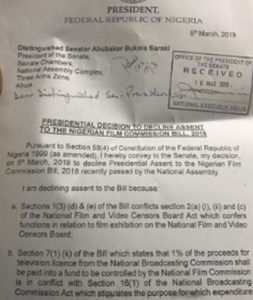
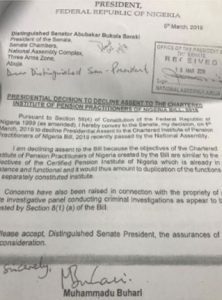
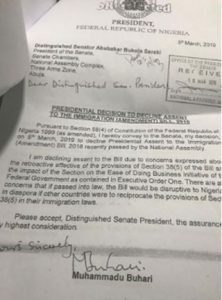
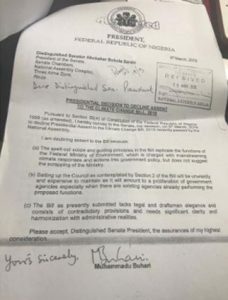
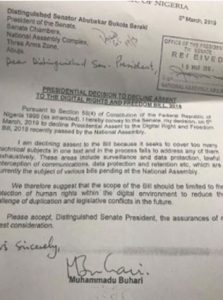
The president said the Bill covered too many technical subjects and “fails to address any of them extensively”.
President Buhari further stated that the technical subjects which include surveillance and digital protection, lawful interception of communication, are currently the subject of various bills pending at national assembly.
President Buhari advised that the scope of the bill be limited to the protection of human rights within the digital environment to reduce the challenge of duplication and legislative conflict in the future.
The bill is an “act to provide for the protection of the human rights online, to protect internet users in Nigeria from infringement of their fundamental freedoms and to guarantee application of human rights for users of digital platforms.




